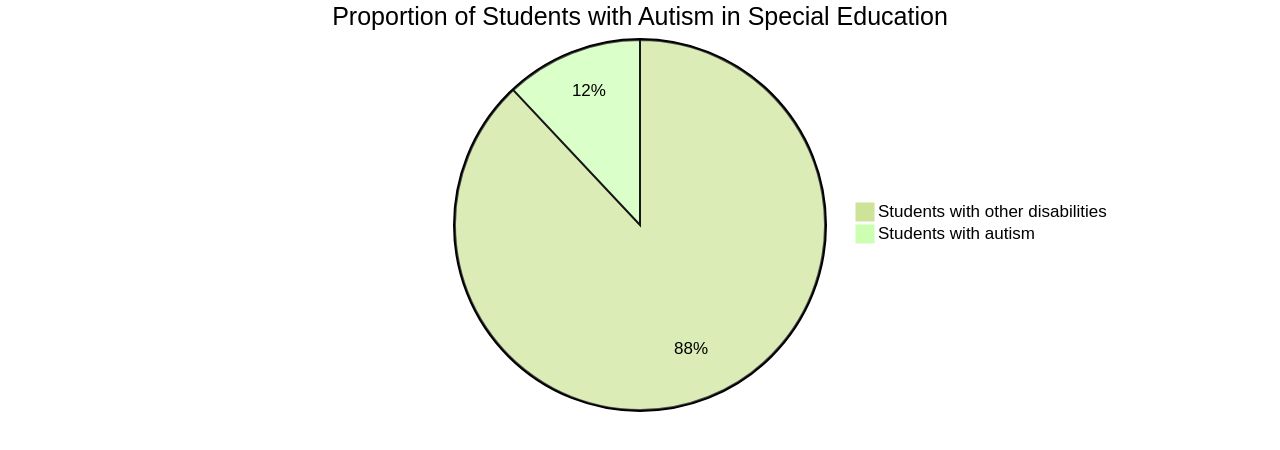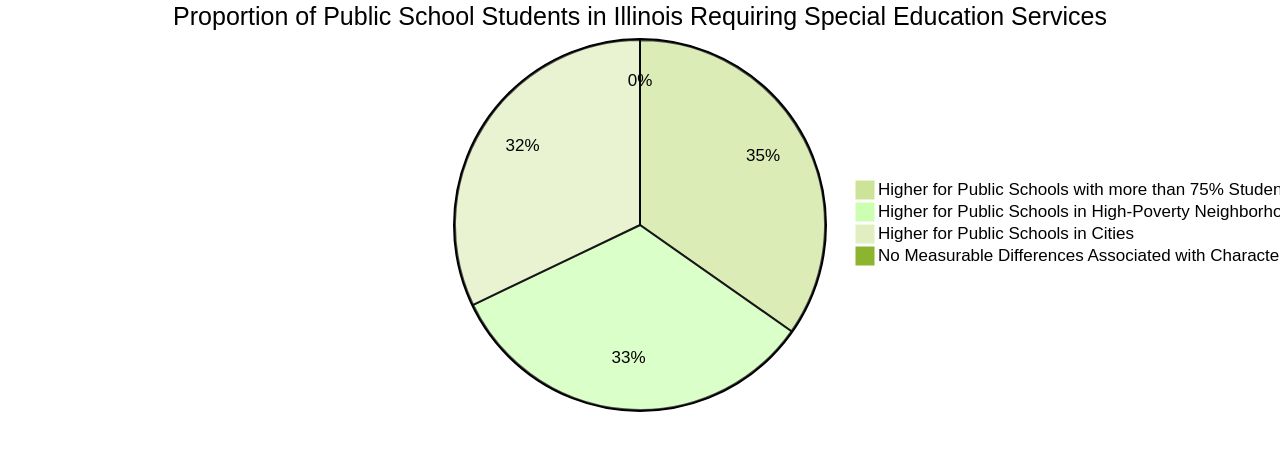Introduction
The Extended School Year (ESY) services play a pivotal role in special education programs, specifically for children with autism. These services are tailored to offer educational assistance during extended breaks like summer vacation, preventing any substantial skill regression and fostering ongoing progress.
In this article, we will explore the strategies for navigating ESY services, understand the eligibility criteria, and learn how parents can advocate for their child's educational rights. Additionally, we will discuss the importance of collaboration with the IEP team and the role of ESY services in transition planning. Join us as we provide guidance and resources to empower Parent Advocates in ensuring the well-being and educational success of their children.
Understanding Extended School Year (ESY) Services
The Extended School Year (ESY) services play a pivotal role in special education programs, specifically for children with autism. These services are tailored to offer educational assistance during extended breaks like summer vacation, preventing any substantial skill regression and fostering ongoing progress.
Crucially, ESY services are personalized to cater to each child's unique needs and are determined through a cooperative decision-making process involving parents, educators, and other professionals. Understanding the strategies for ESY services navigation is vital for parents to advocate for their child's educational rights and to guarantee their access to a free and appropriate public education (FAPE).
These services encompass various interventions such as physical therapy, speech therapy, counseling, or sign language, making it easier for families to navigate the K-12 system. The early application of these services can significantly improve school readiness and academic outcomes, reducing the need for special education later.
Recent data shows that nearly 13% of students with disabilities had autism during the 2022-2023 school year, a significant increase from just shy of 5% in 2008-2009. This rise underscores the importance of EASY services in addressing the needs of this growing demographic. In light of the challenges faced by families in finding local support for their children, significant investments are being made to improve services. For instance, £850 million has been allocated to local authorities across England to enhance services, creating new places in mainstream and special schools, and making existing buildings more accessible and suitable for all. In summary, ESY services are an essential part of the educational journey for children with autism, providing much-needed support and resources to ensure their continued growth and development.

ESY Eligibility Criteria: Regression, Recoupment, and IEP
Establishing a child's eligibility for Extended School Year (ESY) services requires a comprehensive evaluation of several components. These include a child's propensity for regression, their capacity to recoup, and the specifics of their Individualized Education Program (IEP).
Regression pertains to the potential loss of previously learned skills during prolonged school breaks, while recoupment is the child's ability to reacquire these skills within a reasonable time frame. The child's IEP is instrumental in the ESY eligibility determination process.
It contains the child's unique educational objectives and goals. If the IEP shows that the child is at a high risk of significant regression during extended breaks, they may be eligible for ESY services.
A collaborative approach involving parents, educators, and the IEP team is crucial in evaluating the child's regression, recoupment, and overall ESY eligibility. As per recent reports, 15% of public school students in Illinois, equating to more than 278,000 students, require special education services.
This is an increase from a decade ago when the figure stood at 13.6%. The surge in numbers is partly attributed to the pandemic's impact, leading to extended periods of virtual education and social isolation, causing learning and social delays. As a result, parents are becoming increasingly aware of the need for additional support that special education provides to their children. Inclusive early learning opportunities for all children are being recommended by authorities implementing Individuals with Disabilities Education Act (IDEA) programs. These recommendations are intended to support high-quality individualized programming and inclusion of children with disabilities in early childhood programs. Special education services are broad in scope and individually tailored to students, with a focus on providing the necessary support for children to navigate the K-12 system effectively.

Advocating for ESY Services: Strategies for Parents
Ensuring your child's educational growth and mitigating regression is a vital part of being a parent, especially when it comes to advocating for Extended School Year (ESY) services. Here are some valuable strategies:
1.
Understand ESY Guidelines: Comprehending the specific eligibility criteria and guidelines for ESY set by your state or school district will equip you to champion your child's cause effectively. 2.
Engage with the IEP Team: Maintaining an open line of communication with your child's Individual Education Program (IEP) team, which includes teachers, therapists, and administrators, is crucial. Share your concerns about academic regression and the significance of ESY services for your child's ongoing development.
- Keep Records: Document your child's progress, assessments, and any regression during extended breaks.
This evidence can be instrumental in supporting your ESY services request. 4.
Participate in IEP Meetings: Actively express your child's ESY service needs in IEP meetings and collaborate with the team to formulate suitable goals and objectives. 5. Seek Expert Advice: Engage with educational advocates or attorneys specializing in special education law to ensure you are well versed in your child's rights and can navigate the ESY process effectively. Remember, it's not just about providing education; it's about serving the students with the greatest needs, as the president of the Board of Education emphasized during a meeting. The role of a special educator is indeed demanding, and they often face considerable obstacles, such as a lack of shared planning time with general educators. However, their role as case managers is crucial in implementing IEPs effectively. Therefore, it's essential to work closely with them and other professionals to ensure your child receives the best possible education.

Collaborating with the IEP Team for ESY Services
Being an active participant in your child's Individualized Education Program (IEP) team is crucial for ensuring the development and implementation of suitable goals and objectives that cater to your child's specific needs, especially during extended breaks. Here are some tactics to ensure successful collaboration:
1.
Building Positive Relationships: Foster open communication lines and positive relationships with your child's educators, therapists, and administrators. This provides a conducive environment for productive discussions and decision-making concerning Extended School Year (ESY) services.
- Sharing Your Insights: Your unique knowledge of your child's strengths, challenges, and learning style is invaluable.
Sharing this with the IEP team aids in creating a tailored plan that supports your child's needs during extended breaks. 3.
Regular Attendance at IEP Meetings: Regular attendance at IEP meetings allows you to participate actively in the decision-making process. Be ready to discuss your child's regression and the need for ESY services to prevent significant skill loss.
- Collaborating on Goal-Setting: Collaborate with the IEP team to set suitable and measurable goals for your child's ESY services. Ensure these goals are in line with your child's overall educational objectives and address any areas of regression or skill maintenance during extended breaks. 5. Regularly Monitoring Progress: Maintain open communication with the IEP team throughout the ESY period. Regularly monitor your child's progress and discuss any concerns or adjustments that may be necessary to support their continued growth.

ESY Services and Transition Planning
When guiding children with autism through the educational realm, it becomes crucial to incorporate transition planning, especially when considering Extended School Year (ESY) services. Consider the following vital components:
- Collaborate with Specialists: Engaging with transition connoisseurs like school counselors or vocational specialists could be beneficial when incorporating ESY services into the wider transition plan.
These professionals provide indispensable insights to prepare your child for future educational or vocational journeys. 2. Establish Transition Objectives: Determining specific transition objectives that ESY services can reinforce is key.
This may involve enhancing independent living skills, refining social skills for new settings, or preparing for higher education or employment. 3. Ensure Continuity of Services: Collaborative efforts with the IEP team can enable a smooth transition from ESY services to the next educational environment.
This could involve exchanging vital information, evaluations, and suggestions to ensure ongoing progress for the child. 4. Champion Necessary Supports: If your child requires more supports or accommodations during the transition, advocating for their inclusion in the IEP is crucial.
This could mean discussing the need for extended ESY services or other related services for a successful transition. By intertwining transition planning with ESY services, your child can more effectively traverse educational transitions, promoting their continuous development and success. Also, consider ASD.media's digital subscription, priced at $130 per year or $5-7 per month, to access a wealth of resources that can aid in this process.

Conclusion
In conclusion, Extended School Year (ESY) services are crucial for children with autism to prevent skill regression and foster ongoing progress. Parents can advocate for their child's educational rights by understanding ESY guidelines, collaborating with the IEP team, and seeking expert advice.
Collaboration with the IEP team is vital for successful implementation of ESY services. Building positive relationships, sharing insights, attending meetings regularly, and monitoring progress are key tactics for effective collaboration.
Transition planning is important when incorporating ESY services. Collaborating with specialists, establishing transition objectives, ensuring continuity of services, and championing necessary supports aid in a smooth transition. By empowering Parent Advocates with these strategies and resources, we can ensure the well-being and educational success of children with autism. Together, we can navigate the challenges of ESY services and provide the support needed for continuous growth and development.




